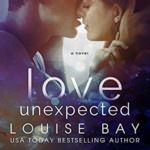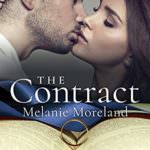According to the publisher’s blurb, ex-cop Ryan O’Hare is just itching to loosen up buttoned-up control freak Liz Garner, and Liz is torn between throwing a glass of wine at him and throwing herself at him. They grew up in the same small town, and know all the same people, but have somehow managed to stay out of each other’s way since they were teens, until Liz’s flighty sister Daisy gets pregnant and needs money. Liz – the younger sister – wants to help her out, so on her summer break from teaching 3rd grade, she takes an extra job watching over Ryan’s grandmother who suddenly turned from grandmotherly to wild after an accident. It seems Maggie has decided, at age 72, to experience everything with gusto, but Ryan thinks she must have had a head injury. He figures Liz – who is totally The Opposite of Wild – will get Gran to slow down; he doesn’t consider it might just be the opposite, with Liz following Gran into crazy-town.
I don’t usually spend much time thinking about character motivation and story arc when I’m reading romance – not that it’s not important, but when the author is a great storyteller, these are practically transparent. You are wrapped up in the story, wanting to know what’s next, how the characters will react. It’s like diagramming sentences – no need when written correctly. It’s when the story seems to be cobbled together from a catalogue of overused characters, tropes, and dialogue (like this book) that you start to wonder why the characters are saying and doing the things you are hearing or reading. More than once, I thought maybe I dozed off and missed something – how could he or she have said, or done, what just happened, so out of the character the author set up, so unrelated to the story? There was lots of tell and not much show – I never did understand why Ryan was supposed to be attracted to Liz, especially from the way she treated him. And there was so much that didn’t seem to have any purpose – again, this is something I don’t spend any time thinking about when reading my favorite authors, because somehow every word, every action, every line of dialogue ends up related to the story, without my having to ponder it at all. Small actions and descriptions throughout a good story should set a mood; they should explain previous actions, or echo a clue to a future one. Instead, I found myself wondering what was going on. In a zip-line scene, perhaps meant to show how Liz could loosen up a little, she thinks she can’t go on, she thinks this is how to show that she does have a wild side, she’s thinking empowered thoughts, she’s thinking of giving into her terror climbing down – ? I couldn’t keep up – was she terrified or not?
Because this was romantic comedy (my favorite genre), I know that some of the dialogue and actions were meant to be funny, so I wanted to give the author the benefit of the doubt. Some actions were probably intended to be out of character as a way to invoke a reader reaction. But after a while, I just wanted to know what the heck was going on. The Big Secrets were let downs. The Humiliation, constantly referred to throughout, happened when the heroine was in middle school. Get over it! The heroine was annoyingly bossy, thought she was always right, and she even job-shamed the hero because she felt his former career as a police officer was more noble than his current private investigator job. Toss in a textbook-flighty sister and a cartoon granny and a couple of next-book-in-the-series brothers, and you’ve got – well, a mediocre story that didn’t entertain me at all.
The narration was better than the book, although it’s pretty tough to judge when you’re so confused about the plot and, frankly, not that interested after a while. Perhaps his characterization of Liz – for instance, in the zip-line scene – could have changed how I perceived it. Maybe the back-and-forth was purposeful but the narration didn’t clue me in to her wild flip-flopping thoughts. (naw, it was just weird) (and I still don’t know why there even was a zip-line scene) He managed the whole male/female voice switching well enough – he placed the women a little higher in his voice without going too falsetto, and also softened the sound to enhance the differences. He gave granny a suitably cartoony, elderly whacko voice. He had a couple of different voices for the men, although there was at least one scene I wasn’t sure who was talking when the brothers were together. (not that I could keep the brothers straight anyway – it required some concentration I lost early on) I did think his accent for the Latin dance teacher Jorge had overtones of a bad Russian accent, and Jorge’s sister had no accent at all. He delivered the sex scenes without overacting – thank you. His voice was pleasant and his delivery showed his professionalism. I’m reaching here – it isn’t easy to “like” a narration of a book that didn’t pass muster.
Plenty of Amazon reviewers found it funny, so I am in the minority there. Goodreads readers were a little less appreciative, although one states that it was in no way cookie cutter, which is The Opposite of What I Thought. I don’t think I have impossibly high standards for romantic comedy – when a new-to-me author can make me laugh out loud a few times, I’m a fan. I didn’t even crack a smile during this listen. If you like contemporary romantic comedy, there are soooo many good audiobooks out there with much more likable characters – I am not recommending this one.
Melinda
Narration: B-
Book Content: C-
Steam Factor: Glad I had my earbuds in
Violence Rating: None
Genre: Contemporary Romance
Publisher: Extra Fancy Books
![]()
The Opposite of Wild was provided to AudioGals by the author for a review.
[jwl-utmce-widget id=32435]



